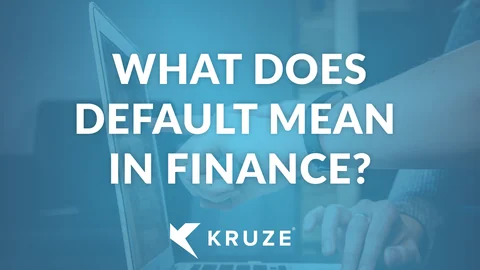
In the startup world, being in default is not a happy place to be. Being put into default occurs when your startup has borrowed money but can no longer repay the loan. In a circumstance like this, you need to know what happens next. Or, even better, know how to avoid it in the first place.
Triggering covenants (why a startup goes into default)
Typically, the reason a startup will be put into default is because it has triggered one of the covenants on a loan’s term sheet.
You can read more about these covenants here, but there are two main types:
-
Financial covenants. These include things like having to have a certain amount of cash in the bank at all times.
-
Negative covenants. Negative covenants are covenants which keep you from doing something. A classic example of this is a negative pledge on intellectual property. This means you cannot pledge your intellectual property to someone else as collateral for another loan.
In a way, both of these work in tandem. The job of the covenants within a term sheet is to make sure the company borrowing the money stays ‘within the lines,’ as it were, of the loan’s terms. Lenders want their borrowers to behave correctly and not be too frivolous with the money they’re receiving. That way everyone remains happy and successful.
Ultimately, lenders need to know what you’re going to do with the money and if you’re going to stray outside of the lines. If you do, lenders know there is a good chance they’re going to lose money. In this case, lenders aren’t underwriting equity risk. They’re underwriting debt risk.
Remedies once a startup is in default
When you trigger a covenant (meaning you violate one of the covenants on the term sheet), the lender will typically put your company into default. Once you’re in default, lenders can then take actions to get their money back and make themselves whole again. These are called remedies.
A classic example of a remedy for startups would be the lender giving you ten days to either:
- Pay back the loan
- Raise more capital
At this point, you’re probably going to call your investors to see if they can do an inside round, or you’re going to beg the bank to relax the covenant a little so you are no longer in violation of it. If you remain in violation of the covenant after this time period, the lender is technically allowed to foreclose on the company.
Typically, they are less likely to foreclose but they are likely to quietly exert some hard power by either:
- Making you sell the company
- Making you raise money in a way you don’t want to
Generally, this is also when startups are getting their investors involved as well, since VCs are usually sophisticated when it comes to venture debt.
Pay attention to term sheet covenants
As a founder, you need to keep these consequences in mind when you take out a loan. Loans aren’t free money and you can’t just do whatever you want with it. You have to play by the rules of the loan so you don’t end up in default and are forced to either sell your company or raise money at a low valuation. Worst case scenario, you could get fired!
So remember to pay attention to the covenants and stay out of default! If you have any other questions on being in default, valuations, startup investing, or startup accounting, please contact us. You can also follow our YouTube channel and our blog for information about accounting, finance, HR, and taxes for startups!